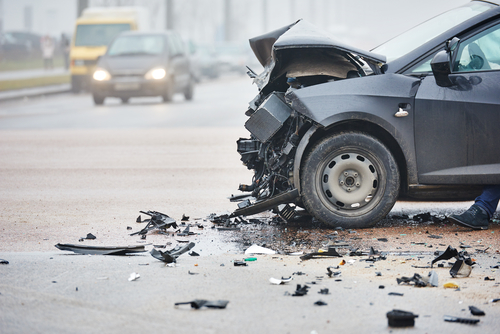A road traffic collision (RTC) is potentially a very dangerous scene. We have moving traffic, fuel, passive bystanders, patients who are injured, people who are upset and angry and the remnants of the car crash itself. All of these things can present a danger to us.
On Arrival at an RTC
Before you even get out of your car or approach the scene just take a second to think, “Is it safe? Am I going to end up on the list of casualties here if I proceed towards this incident?” Sometimes the dangers are hidden, fumes you can’t see. There are explosion risks that you might not immediately anticipate. But if you just take that second to stop and think, you can be less of a danger to both yourselves and the people around you.
When turning up at RTCs, safety is the number one priority. Think about where you are going to park. Think about how you are going to get emergency services to that scene. If you pull up on a blind bend and another car comes around that corner, you will probably cause another crash. Make sure that the emergency services are on their way, because if you have not called them who has? The emergency services would rather have two or three calls on an RTC than none at all.
At the Scene
There are many, many dangers on an RTC scene, and you need to be prepared and kitted properly to effectively deal with this. Sometimes it may be better to stay back and make sure the emergency services are en route.
Major problems from an RTC can include the following:
- Burns
- Catastrophic Bleeds
- Head Injuries and Concussion
- Unconscious Patients
- Broken Bones
- Pelvic Injuries
- Internal Bleeding
- Spinal Injuries
- Amputated Limbs
Feel free to click on any of the links to take you to the relevant page!
For more information on training courses, visit our “Courses” page which also includes our First Responder and First Person on Scene (FPOS) Courses.


Pingback: The Healing Process to Bleeding - First Aid Wiki
Pingback: Shock - First Aid Wiki
Pingback: Knife Wounds - First Aid Wiki